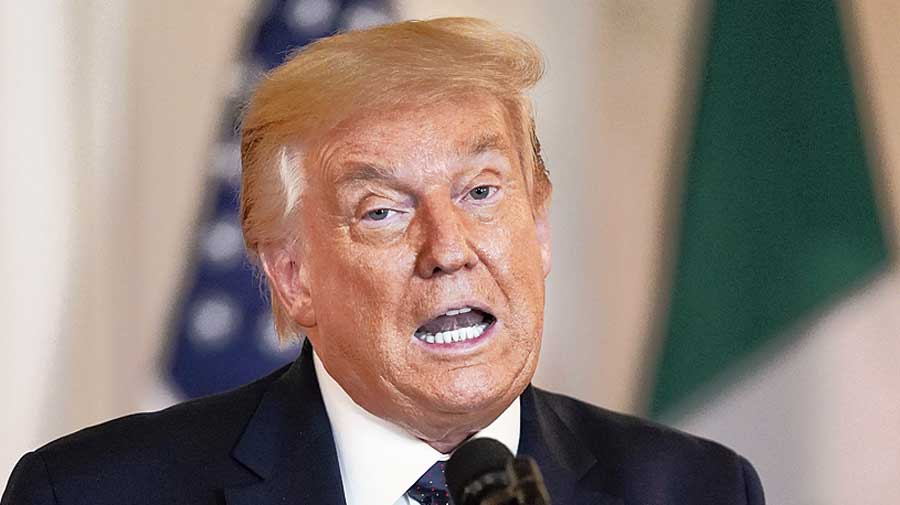The Supreme Court on Thursday cleared the way for prosecutors in New York to see President Trump’s financial records, a stunning defeat for Trump but a decision that probably means the records will be shielded from public scrutiny under grand jury secrecy rules until after the election, and perhaps indefinitely.
In a separate decision, the court ruled that Congress could not, at least for now, see many of the same records. The vote in both cases was 7 to 2. Chief Justice John G. Roberts Jr wrote both majority opinions.
The court’s decision in favour of the New York prosecutors was a major statement on the scope and limits of presidential power, one that will take its place with landmark rulings that required President Richard M. Nixon to turn over tapes of Oval Office conversations and forced President Bill Clinton to provide evidence in a sexual harassment suit.
In the case concerning the prosecutors’ subpoena, Chief Justice Roberts wrote that “no citizen, not even the President, is categorically above the common duty to produce evidence when called upon in a criminal proceeding.” He added that Trump may still raise objections to the scope and relevance of the subpoena.
The court’s four more liberal members joined that majority opinion, and Trump’s two appointees, Justices Neil M. Gorsuch and Brett M. Kavanaugh, voted with the majority but did not adopt its reasoning.
In the case concerning congressional subpoenas, Chief Justice Roberts wrote that lower courts had not adequately considered the separation of powers concerns raised in the case. He was joined by the same justices who voted with him in the New York case.
Justices Clarence Thomas and Samuel A. Alito Jr. dissented in both cases.
Trump immediately attacked the outcome on Twitter. “This is all a political prosecution.”
“Courts in the past have given “broad deference”. BUT NOT ME!” he wrote.
Trump had asked the court to block both sets of subpoenas, which had sought information from Trump’s accountants and bankers, not from Trump himself; the firms have indicated that they would comply with the court’s ruling.
Trump’s lawyers had argued that he was immune from all criminal proceedings and investigations so long as he remained in office and that Congress was powerless to obtain his records because it had no legislative need for them.
Jay Sekulow, a lawyer for Trump, portrayed the decisions as at least a temporary victory.
“We are pleased that in the decisions issued today, the Supreme Court has temporarily blocked both Congress and New York prosecutors from obtaining the President’s tax records,” he said in a statement. “We will now proceed to raise additional constitutional and legal issues in the lower courts.”
House Democrats and New York prosecutors said the records may shed light on Trump’s foreign entanglements, possible conflicts of interest, whether he has paid his taxes and whether his hush money payments violated campaign finance laws.
One of the cases concerned a subpoena to Trump’s accounting firm, Mazars USA, from the office of the Manhattan district attorney, Cyrus R. Vance Jr, a Democrat. It sought eight years of business and personal tax records in connection with an investigation of the role that Trump and the Trump Organisation played in hush-money payments made in the run-up to the 2016 election.
Vance expressed satisfaction with the ruling in his favour.
“This is a tremendous victory for our nation’s system of justice and its founding principle that no one — not even a President — is above the law,” he said in a statement. “Our investigation, which was delayed for almost a year by this lawsuit, will resume, guided as always by the grand jury’s solemn obligation to follow the law and the facts, wherever they may lead.”
Both Trump and his company reimbursed the President’s former lawyer and fixer, Michael D. Cohen, for payments made to the pornographic film actress Stormy Daniels, who claimed that she had an affair with Trump.
Cohen was also involved in payments to Karen McDougal, a Playboy model who had also claimed she had a relationship with Trump. The President has denied the relationships.
Trump sued to stop the accounting firm from turning over the records, but lower courts ruled against him. In a unanimous ruling, the US Court of Appeals for the Second Circuit, in New York, said state prosecutors may require third parties to turn over a sitting President’s financial records for use in a grand jury investigation.
New York Times News Service











